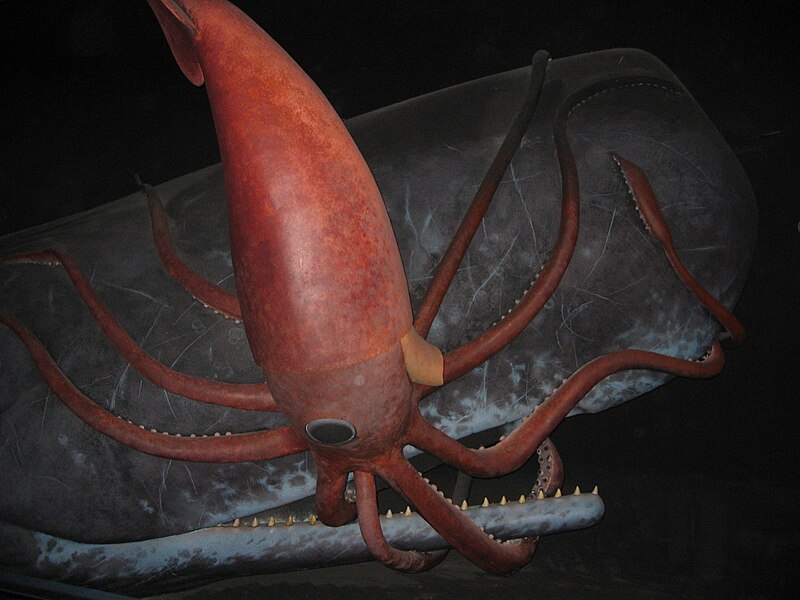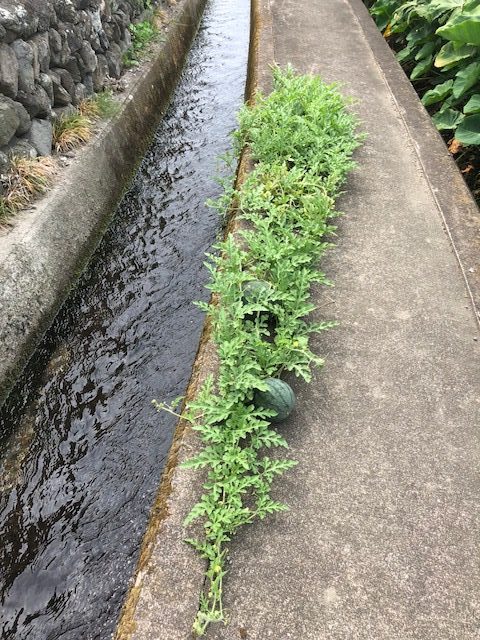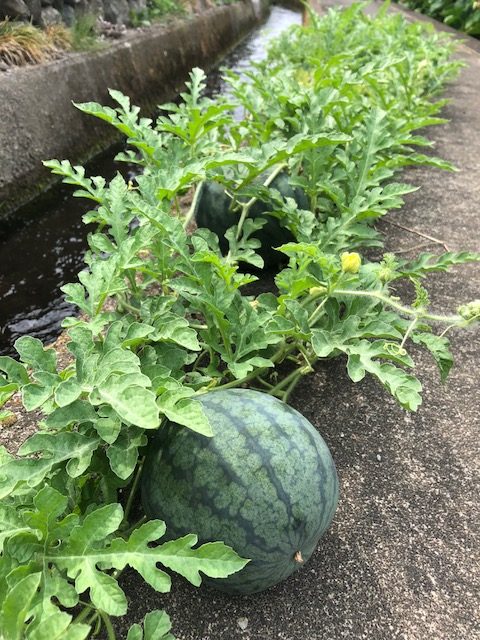月別アーカイブ:2018年8月
Amazing Animals or Just Easily-Impressed Humans?
Yesterday, a class I teach started a new unit in their textbook entitled “Monkeys are Amazing!” I don’t think of monkeys as being necessarily amazing, so I asked my students if they agreed with the title. Most of them did, and threw in a few other animals that they think are amazing, like gorillas and giraffes. I guess all animals are amazing in their own way, but most animals don’t incite feelings of wonder or make me go, “Wow! How does this animal even exist?? It’s sooooo amazing!!”
Regardless of how I feel about gorillas or giraffes, here are some animals that I do think are amazing. Funnily enough, the first two aren’t land animals at all.
The ocean is so deep that we can only theorize upon the creatures that live in the deepest and darkest depths. The first amazing animal is the giant squid (not to be confused with the colossal squid, which is also incredible). These beasts can grow up to 10 meters including their long tentacles and their eyes are thought to be some of the largest in the animal kingdom. They live in oceans all over the world except for tropical or arctic waters. Their main predator is the sperm whale. These cephalopods are so elusive that before they were captured or filmed, scientists only knew they existed from examining the contents of whales’ stomachs and finding tentacles or beaks of giant squids.

A dramatization of a sperm whale fighting with a giant squid.
The second amazing animal is the Greenland Shark which has the longest known lifespan of all vertebrate species: 300 to 500 years! It’s also one of the largest living species of sharks and grow up to 6.4 meters. Wow! They live in cold waters off of the eastern U.S. and western Europe, though they have been found at the depths of the Gulf of Mexico. It is also believed that they eat colossal squid because they live at the same depths.

A Greenland Shark just chillin’.
So, what do you think? Are these animals amazing to you, too?
植物の生命力
こんにちは、今日もアミックブログを訪れていただきありがとうございます!
猛暑日が続く中でも毎日頑張っているのは私たち人間だけではありません
小さくも懸命に生きている命にこんなところで出会いました

拡大してみます。。。

なんと、watermelon
畑に植えられているのではなく、コンクリートの農道
ひび割れた隙間に種が落ちたかなんかで、そこから育ってこんな立派な実をつけていました
どんな場所でも、最低限必要な土(コンクリートの下にあるのか)や水があればきちんと育つんですね
お散歩中にとてもほっこりさせてもらいました
ただ残る疑問は、あのスイカは誰のもの
見つけた順なら名前書いとこっかな〜
アミック英会話スクール
英会話・英語 アミック – Every time vs all the time
Every time vs all the time
Every time
We use every time when we are talking about each individual time something happens. We do not know how frequently this is, only that it happens each individual time.
- Every time I go to the beach, it rains.
- He’s very reliable. He’s there every time I need his help.
- It’s like magic! She guesses the correct card every time!
All the time
We use all the time to talk about something that always or usually happens.
- In the UK, it rains all the time.
- She’s late all the time. We have to talk to her manager.
- What’s their secret? They’re happy all the time!
Just a skosh of Japanese to English loan words – 英会話・英語 アミック
A few months ago, a friend introduced me to WaniKani.com as a way to learn kanji. Instead of simple symbol-meaning flashcards, the site gives you a mnemonic or other memory device to help you remember the reading for each kanji it teaches.
The other day I was introduced to the word 少し (sukoshi), meaning ‘a little’. I didn’t think anything special of it until I looked at the reading notes:
Did you know that this word created an English word you probably already know? Have you ever heard someone say “just a skosh”? That’s 少し! Hopefully you know this English word and therefore know this Japanese word as well.
This blew my mind, and if you had asked me before where I thought ‘skosh’ originated from I probably would have guessed from a Scandinavian or Indigenous peoples’ language. It also made me wonder what other Japanese words have snuck into the English language without me realizing, of which I found a few more that surprised me:
- Emoji (e/絵 “picture” + moji /文字 “character”)
- Soy (I knew that shoyu/醤油 was Japanese for soy sauce but never put two and two together)
- Tycoon (from 大君 meaning ‘high commander’ or ‘great prince’)
- Honcho (from 班長 hanchō, meaning ‘head of something’ or ‘chief’)
- Rickshaw (from 人力車 jinrikisha/ninryokusha)
America’s Koshien Equivalent – 英会話・英語 アミック
A student recently asked me if there was an amateur summer sporting event similar to the Japanese High School Baseball Championship, one that captures Americans’ attention the way it does the Japanese.
The short answer is: no. While high school football and basketball state tournaments are popular and well-followed in certain parts of the country, they only really register on a regional scale (organizing a nationwide competition that includes teams from all 50 states would be difficult and expensive due to the size of the country). Plus, high school sports are rarely played during the summer.
The closest thing I can think of is the Little League World Series, which takes place every August in Williamsport, Pennsylvania.
Little League Baseball is a youth baseball organization for 10 to 12 year olds with member clubs all over the world. The winners of 16 qualifying tournaments (eight from America, eight from areas outside the U.S.) go on to represent their region at the LLWS. Like Koshien, the LLWS has its own hallowed ballpark: Howard J. Lamade Stadium, which has been hosting little league games for nearly 60 years and can seat around 30,000 fans if you count the many that enjoy watching from the large grass hill in the outfield. The tournament is broadcast live on ESPN and many of the young participants have gone on to play in the Major Leagues, including Gary Sheffield, Jason Varitek, and Yusmeiro Petit (the only player to ever win the LLWS and World Series).
Despite taking place in America, it’s actually teams from other countries that have fared better over the contest’s 71-year history. The Japanese team is actually the second-most successful LLWS club, their 11 championships (including five since 2010) trailing only behind Taiwan’s 17.
However, while most casual American sports fans are familiar with the event, to most it’s still not much more than an afterthought: something to put on TV in the background during an otherwise dead period in the American sports calendar (unless of course there is a big scandal surrounding the tournament, as there was in 2001 and 2014).












